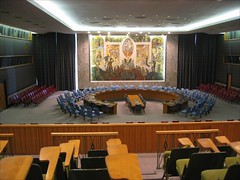Nuclear Iran, Reloaded
In the Reloaded version of my blog, I'll write about Iran, its nuclear program, its culture, and most importantly, myself.
Other Energy Sources
Does iran have zero options for other sources of energy? Hydroelectric, solar, and wind come to mind. While they are more expensive in the short run, they could also help to alleve Iran's energy issues to a certain extent while improving its indisputably shoddy image on the world stage.
Yes, Iran does have other renewable energy options, and she is currently taking advantage of them. A link that I found using a simple google search (in Persian) listed over 300 dams in Iran, many of which produce electricity. A report by Iran’s ministry of energy (.PDF, Persian, 2004) states that 14% of the produced electricity in Iran comes from hydroelectric power plants.
Iran has also invested in wind energy. Manjeel wind power plant is one of the 26 wind farms in Iran and is very close to my home town (and that is why I know it). Believe it or not, it is administered by Atomic Energy Organization of Iran. It barely provides enough electricity for the city of Manjeel. There are also few geothermal plants around mount Sabalan that produce 100MW of electricity, which amounts to 0.3% of the total production. What I can conclude is that all types of renewable energies are not necessarily suitable for all regions. "Other Renewable options" are very easy to talk about, but feasibility, efficiency, and cost are factors that must be taken into account.
Bushehr nuclear power plant (which was supposed to become operational by 1970s, but is stil under construction!) has a nominal power of about 1000 MW which will amount for 3% of the current electricity production. Iran is planning to produce 20,000 MW of nuclear electricity by 2020.
As I understand by studying the above mentioned numbers (which are the results of a half-hour web-research), the renewable energies cannot provide a great portion of Iran’s energy consumption.
About the second sentence is his comment, I should say that I don’t agree with him. Iran has been, is being, and will be demonized by the United States, no matter what it does (example), or does not (example). So, she’d better move forward (if not giving in!). Don’t you think?
Welcome to New York

(1). To sandwich Iran between deadlines and pressure Iran to accept Russian’s offer. In an earlier meeting, US convinced China and Russia that taking Iran to UNSC would make Iran listen and promised not to seek sanctions (see my earlier post in September). (2). US will be holding the presidency of the UNSC during the month of February. I am not sure as how much this would affect the actions by the UNSC, but I think this does have an effect on the decisions.
I have become tired of reading what Iran should or should not have done to avoid the situation it is in now; therefore I am not adding anything to it. Let think what Iran should do in future.
Now that Iran has been reported to UNSC, there are two possible paths Iran can follow:
1. Do what it has warned it’d do: Block IAEA’s snap inspections and start industrial enrichment. This would mean that Iran is confronting almost 77% of the world. This equals isolation. It means that Iran is up for the escalation of the situation. What Iran can gain with doing so is nothing but mastering the fuel cycle (in fact that would be contingent upon overcoming the technical difficulties, which takes months). And then what? Does it make Iran a better place to live? NO. Does it make Iran more vulnerable? YES.
2. The second strategy, which I have suggested several times, is to back off and not get engaged with the majority (Iranian officials still think that US manipulates others to vote against Iran, but this is the way it works: whoever has the power, has the majority). They can suspend for 5 years, let the inspectors inspect, and at the same time make substantial changes. This way they do not let the matter out of their hands.
The new government has probably found out that by oppressing the media they only fool themselves: they only rearrange their prejudices when they think they are taking everything into account.




